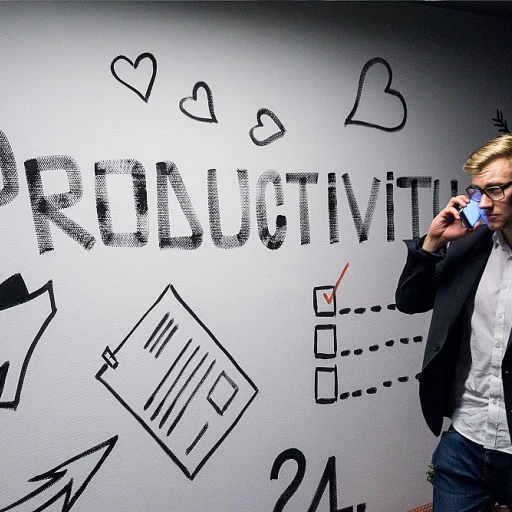
Understanding entry level HR jobs
What to Expect from Early Career HR Roles
Entry level jobs in human resources are a great starting point for people from diverse backgrounds who want to learn about business, talent acquisition, and people management. These roles are often the first step in a career path that can lead to positions like human resources manager, talent acquisition specialist, or business partner. Whether you are a recent graduate with a bachelor degree or someone looking to change careers, entry level HR jobs offer a wide range of opportunities to gain work experience and develop new skills.
Key Responsibilities and Day-to-Day Work
Most entry level jobs in HR focus on supporting the daily operations of the human resources department. Typical tasks include:
- Assisting with the application process for new hires
- Helping coordinate interviews and onboarding programs
- Maintaining employee records and HR databases
- Supporting talent acquisition efforts and joining the talent community
- Responding to employee questions about benefits, policies, and time work schedules
Some roles, like human resources coordinator or resources entry specialist, may also involve working closely with senior HR staff and consulting with other departments. This exposure helps you learn how HR supports the business and prepares you for more advanced positions over the years.
Who Should Apply and What Employers Look For
Employers hiring for entry level HR jobs are often looking for candidates who are eager to learn, have strong communication skills, and can work well in a team. While a bachelor degree in human resources or a related field is sometimes required, many organizations value practical experience, internships, or even part-time work in customer service or administration. If you are ready to apply, highlight your willingness to learn and your interest in supporting people and business goals.
Career Pathways and Opportunities for Growth
Starting in an entry level HR job opens doors to a variety of career paths. With experience, you can move into roles like resources manager, acquisition specialist, or even senior consulting positions. Many companies offer full time programs and training to help you grow, and the skills you develop early in your career will be valuable as you advance. For those interested in how artificial intelligence is transforming the role of manager of people, you can read more in this in-depth article.
How artificial intelligence is changing the HR landscape
AI’s Impact on Daily HR Workflows
Artificial intelligence is transforming the way entry level jobs in human resources operate. Tasks that once required hours of manual work, like screening resumes or scheduling interviews, are now streamlined by AI-powered tools. This means early career professionals can focus more on people-centric activities, such as supporting talent acquisition or assisting with onboarding programs, rather than repetitive administrative work. AI also helps human resources teams analyze large volumes of data. For example, AI can quickly identify trends in employee engagement or flag potential issues in the application process. This gives entry level HR specialists and coordinators a chance to learn how data-driven insights support business decisions, even in their first year on the job.New Opportunities for Entry Level HR Roles
The integration of AI opens up a range of opportunities for those starting their careers in HR. Entry level jobs now often involve working with digital platforms that manage candidate pipelines, track work experience, and support talent community initiatives. As a result, HR professionals from diverse backgrounds can contribute to projects that were once reserved for more senior resources managers or business partners. Some companies are even offering full time roles focused on AI-driven consulting within HR, where entry level specialists help implement and improve these technologies. This shift means that those ready to apply for jobs in human resources will find a growing demand for digital skills alongside traditional HR knowledge.AI Tools and What They Mean for Your Career
AI is not just about automation. It’s about enhancing the human side of HR. For example, AI can support talent acquisition specialists by matching candidates to roles more effectively, or help resources coordinators manage employee data with greater accuracy. This allows HR teams to deliver better experiences for both candidates and employees. If you’re considering entry level jobs in HR, understanding how AI tools work will set you apart. Many organizations now look for candidates who are comfortable using technology and can adapt to new systems quickly. A bachelor degree is still valuable, but practical experience with AI platforms can make your application stand out. For a deeper dive into how automation is reshaping HR, you can read about the benefits of RPA as a service in human resources.- AI streamlines repetitive HR tasks, freeing up time for people-focused work
- Entry level HR professionals gain exposure to data-driven decision making
- Digital skills are increasingly important for jobs in human resources
- AI creates new opportunities for growth, learning, and specialization
Skills you need for entry level HR roles in an AI-driven world
Key Abilities for Early Career Success in AI-Driven HR
As artificial intelligence becomes a core part of human resources, the skills required for entry level jobs are evolving. Whether you are aiming to become a human resources coordinator, talent acquisition specialist, or join a talent community in a large business, understanding the new landscape is crucial. Today, employers look for a mix of traditional HR abilities and digital fluency to ensure you can work effectively in AI-powered environments.
- Digital Literacy: Comfort with HR software, data analytics, and AI tools is now essential. Many entry level jobs require you to navigate platforms that automate parts of the application process or help with talent acquisition. Even if you are not coding, being able to learn new programs quickly will set you apart.
- Analytical Thinking: AI in HR often means working with large sets of data. Being able to interpret trends, understand metrics, and use insights to support business decisions is a valuable asset for any human resources specialist or coordinator.
- Communication Skills: Despite the rise of automation, human interaction remains at the heart of HR. Clear communication helps bridge the gap between technology and people, especially when explaining AI-driven changes to colleagues from diverse backgrounds.
- Adaptability: The field is changing rapidly. Entry level professionals who are open to learning and can adapt to new tools or workflows will find more opportunities for growth. This is especially true for those interested in moving from entry level to senior or business partner roles over time.
- Ethical Awareness: As AI influences hiring and talent management, understanding ethical considerations—like bias in algorithms or data privacy—is increasingly important. Employers value candidates who can apply these principles to real-world situations.
Most entry level jobs in human resources do not require advanced technical degrees, but a bachelor degree in business, psychology, or a related field is often preferred. Work experience through internships, volunteering, or part-time roles can also help you stand out in the application process. If you are ready to apply for full time positions, highlight your willingness to learn and your experience with digital tools, even if it comes from outside traditional HR settings.
For a deeper look at how artificial intelligence is transforming the skills needed in human resources, you can read this in-depth analysis of AI's impact on HR at a leading tech company.
Common challenges for newcomers in AI-powered HR environments
Adapting to New Tools and Processes
Starting your career in entry level human resources jobs with AI integration can be both exciting and challenging. Many early career professionals find themselves adjusting to new technologies that automate tasks like talent acquisition, resume screening, and employee onboarding. While these tools are designed to streamline the application process and improve efficiency, they often require a learning curve. You may need to quickly become comfortable with software platforms and data-driven decision making, even if your previous work experience was more traditional.
Balancing Human Touch with Automation
One of the most common challenges for newcomers is finding the right balance between leveraging AI and maintaining the human element in HR. AI can help identify qualified candidates and manage large talent communities, but it cannot replace the empathy and understanding that a human resources coordinator or business partner brings to the table. Entry level jobs in HR still require strong interpersonal skills to support employees and foster a positive work environment. Learning when to rely on technology and when to engage personally is a skill that develops with experience.
Navigating Data Privacy and Ethics
With AI handling sensitive employee data, entry level HR specialists must be aware of privacy and ethical considerations. Understanding how to protect personal information and ensure fairness in automated decision making is crucial. Many organizations offer training programs to help new hires learn about compliance and responsible AI use, but it’s important to stay proactive and informed as regulations and best practices evolve year after year.
Managing Expectations and Workload
AI can make HR processes more efficient, but it can also raise expectations for productivity. As a new member of the team, you may be expected to handle a higher volume of tasks or adapt quickly to changing business needs. This is especially true in full time roles or consulting environments where clients expect fast results. Building resilience and time management skills will help you succeed as you grow from entry level to more senior positions, such as resources manager or acquisition specialist.
- Be open to learning from colleagues with diverse backgrounds and varying levels of experience.
- Seek feedback regularly to improve your use of AI tools and business processes.
- Remember that every challenge is an opportunity to develop skills that will benefit your long-term career in human resources.
Opportunities for growth and learning with AI in HR
Unlocking New Career Paths with AI in HR
Artificial intelligence is opening up fresh opportunities for those starting their journey in human resources. Whether you are looking for entry level jobs or aiming to become a human resources specialist, AI-driven tools are changing the way businesses hire, develop, and retain talent. This shift means that early career professionals can access new roles and responsibilities that were not available just a few years ago.
- Broader exposure: Entry level HR jobs now often include working with AI-powered platforms for talent acquisition, onboarding, and employee engagement. This gives you a chance to learn about the latest technologies while gaining practical work experience.
- Faster skill development: Many organizations offer training programs to help newcomers learn how to use AI tools. These programs can accelerate your growth and prepare you for more advanced roles, such as HR business partner or resources manager.
- Cross-functional learning: AI in HR encourages collaboration between departments. You might work closely with IT, data analytics, or consulting teams, which helps you build a diverse skill set and understand the business from multiple angles.
- Opportunities for specialization: As you gain experience, you can focus on areas like talent acquisition specialist, workforce analytics, or employee experience. AI makes it easier to track your progress and identify where your strengths lie.
Building a Foundation for Long-Term Success
For those with a bachelor degree or from diverse backgrounds, AI integration in HR means that your unique perspective is valued. Many companies are looking for entry level candidates who are eager to join talent communities and ready to apply new ideas. Even if you start as a resources coordinator or in a full time support role, the experience you gain with AI tools will set you apart as you move toward senior positions.
It’s also worth noting that the application process for jobs human resources is evolving. AI can help match your skills to the right level jobs, making it easier to find the best fit for your career goals. Whether you are interested in jobs york, remote work, or consulting, there are more ways than ever to get involved and grow within the field.
By embracing these opportunities, you’ll be well positioned to build a rewarding career in human resources, no matter where you start.
Tips for landing your first entry level HR job
Getting Ready to Apply: Practical Steps
Breaking into entry level jobs in human resources, especially with AI integration, can feel overwhelming. But with the right approach, you can stand out in the application process and join a talent community that values diverse backgrounds and digital skills. Here are some actionable tips to help you get started:- Build Relevant Work Experience: Even if you are early in your career, seek internships, part-time roles, or volunteer opportunities related to HR, talent acquisition, or business consulting. These experiences show employers you understand the basics of human resources and are ready for full time work.
- Highlight AI Awareness: In your resume and interviews, mention any experience with AI tools, data analysis, or digital platforms. Employers want to see you are comfortable learning new technologies and adapting to changes in the workplace.
- Leverage Your Education: A bachelor degree in human resources, business, or a related field is often required for entry level jobs. If you have completed any online courses or certification programs focused on AI in HR, be sure to include them.
- Network with Industry Professionals: Connect with HR specialists, resources managers, and acquisition specialists through professional networks or local events. These connections can provide insights into the business and may even refer you to open positions.
- Tailor Your Application: Customize your resume and cover letter for each job. Use keywords from the job description, such as talent acquisition, resources coordinator, or business partner, to show you understand the specific requirements.
- Prepare for AI-Driven Assessments: Many companies use AI-powered tools to screen applications. Practice common online assessments and video interviews so you are comfortable with the technology and can present your best self.
What Employers Look For
Employers hiring for entry level HR roles with AI integration value candidates who:- Demonstrate curiosity and a willingness to learn new systems
- Show adaptability to evolving business needs
- Communicate clearly and work well with teams from diverse backgrounds
- Understand the basics of data privacy and ethical use of AI in HR













